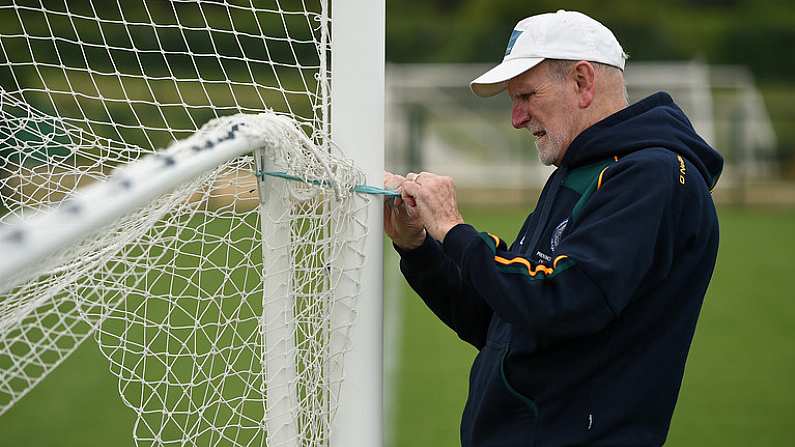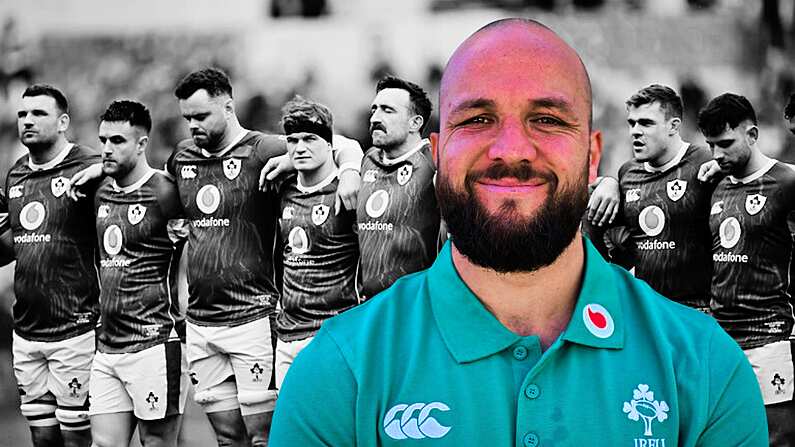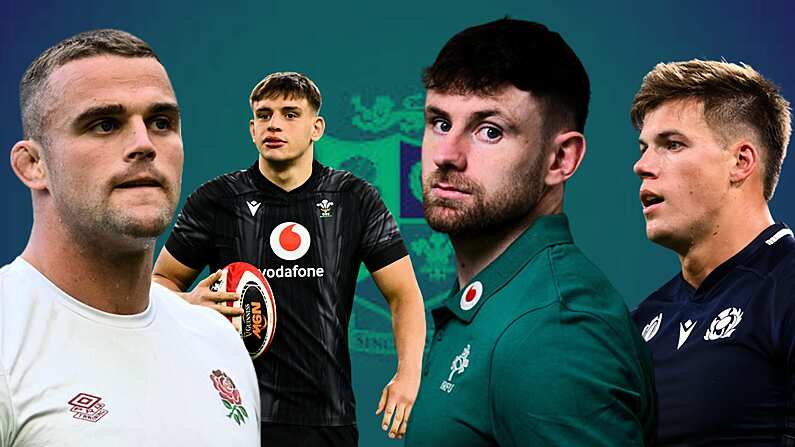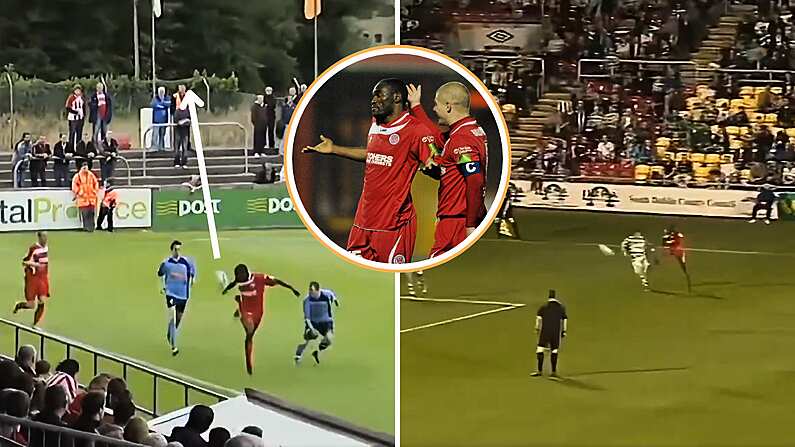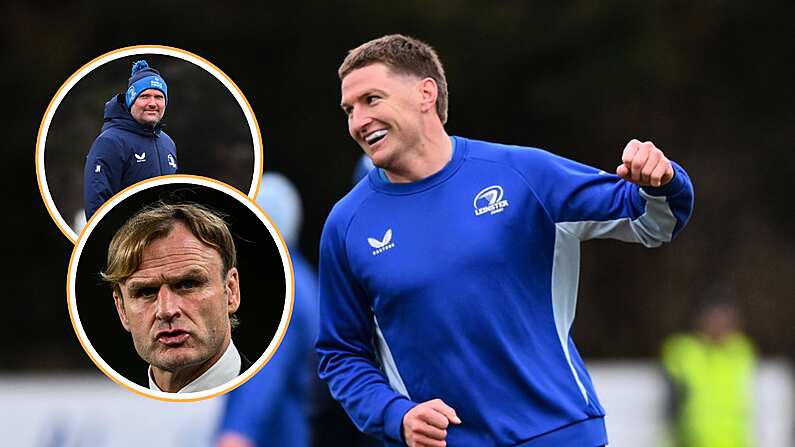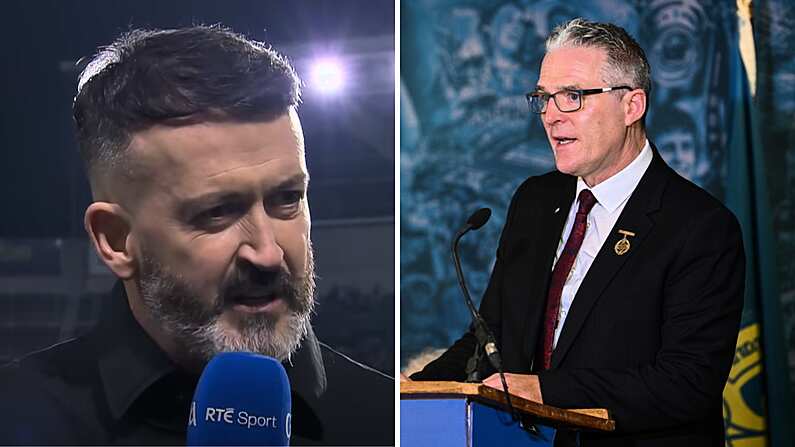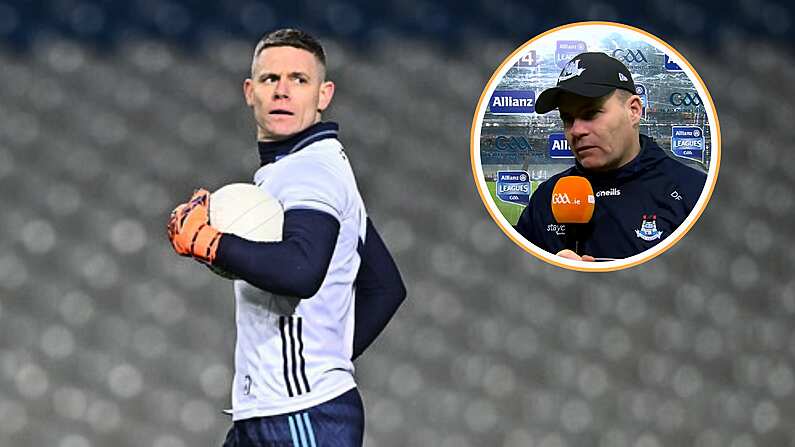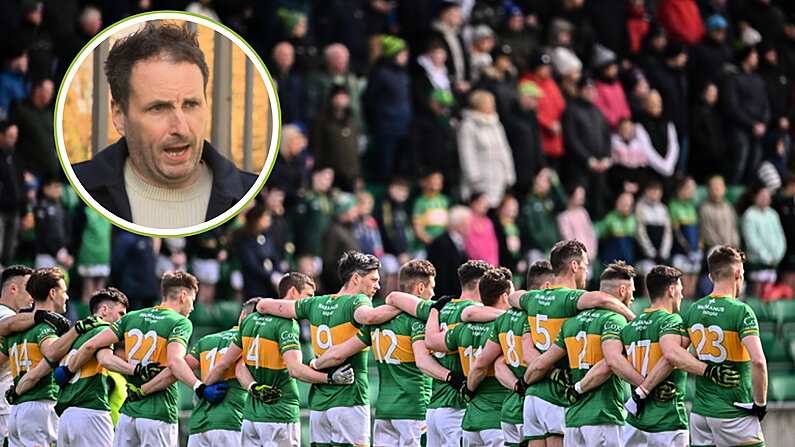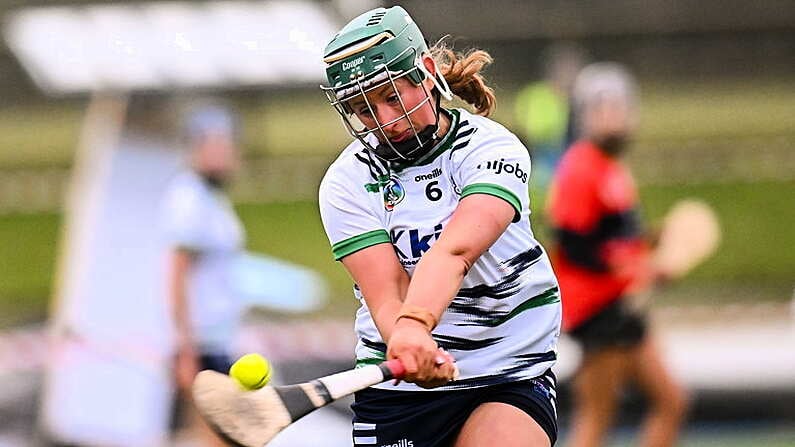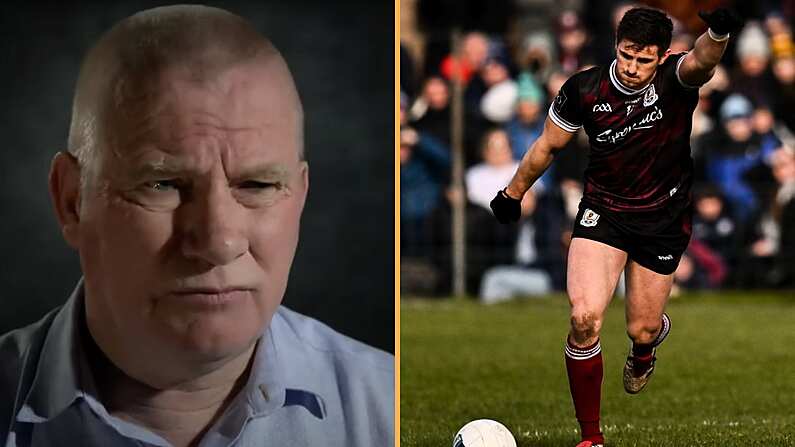If you know of anyone in the GAA who wants to move the goalposts anytime soon, best to direct them to London.
London GAA coach Ciaran Deely was a guest on this week's episode of the So-Called Weaker Podcast, and detailed some of the challenges his side face in simply preparing for games. Midweek, they don't have access to a floodlit GAA pitch, meaning that they train on a 4G rugby pitch. They've fashioned goals by pushing a set of soccer goals behind the rugby posts.
We lost to Carlow, and kicked ten wides. Someone said to me after the game that your shooting was off today, and I replied 'well, what do you expect? We don't have a GAA goal to practice with'.
It's a huge problem, isn't it. We're shooting into a rugby goal. We have a rugby goal and a soccer goal, so you know, in some ways it is laughable that you are trying to compete with Irish counties with centres of excellence, sports science and backroom staffs of up to 25 people. And we don't have a Gaelic goal to practice with.
The dimensions of the training pitch complicate matters beyond just shooting practice: kick-out strategies do not migrate easily between pitches.
The problems don't stop there.
There are huge challenges. Anyone who hasn't played in London probably doesn't understand the full extent of the challenges. Most people latch onto the travel issues facing players crossing London. And that's true, but there are players across Ireland travelling huge distances to get to training. But I don't think travel is the biggest issue. The biggest is the lack of facilities.
Whereas in Ireland people are always talking about player burnout, particularly regarding younger players, we have the opposite problem.
Our senior players only had one friendly game before the league, so our match sharpness is not up to the standard of the Irish teams. Bigger still is the fact that younger players who are coming into the senior team, at around 21 and 22, don't have enough games. We have no under-20s side, we've some form of a minor team but they play in the All-British championship rather than the All-Ireland.
It just means that we've a lot of talent at 16 and 17, but we tend to lose them to other sports owing to a lack of games and a lack of interest.
We need simple things like a floodlit training pitch, GAA goals, and help playing friendly games in Ireland. London can be there as a litle bit of a sideshow, which we are to some people, but we are trying to put a set-up in place and develop players as well we can, so we can compete with and perhaps beat teams who have done much more training than us and who have better facilities.
In spite of it all, London have made a fine start to Division 4. They were beaten by a Carlow side who look a sure bet for Division 3 after a heartening 2017, while since they have beaten Wicklow and drawn with Limerick. The Limerick draw offered Deely most encouragement, despite the fact he feels his team should have won.
You're fighting against a traditional history of London teams losing games. That's why I was so proud of the lads at the weekend. We controlled that game, we did really well and were a point up with seven minutes to go. We just didn't finish out the game, and we had two or three chances to do so.
That's where that lack of winning tradition comes against you, you're just not used to being in that position. For the lads, that was a difficult and new position for them to be in. Then when Limerick got the goal, and they followed it up with a point, most people would have said, 'Well that's it. London have done well but not got over the line'.
So for the lads to go up the other end of the pitch and actually work a goal from the end line, it took fantastic mental resolve. While we were disappointed not to get the win, you know what? Getting two results is fantastic in February is great.
Deely and London may be pushing a rock up a hill, but they've some heft behind it. He is intent on creating a professional environment, and to help in that he has drafted a sports science expert from QPR, a physio from Millwall, and a goalkeeping coach from Watford. Jim McGuinness has chimed in with advice, with team meetings characterised by brutal honesty ever since.
Slowly, but surely, things are happening.
You can listen to the full interview on the podcast.

